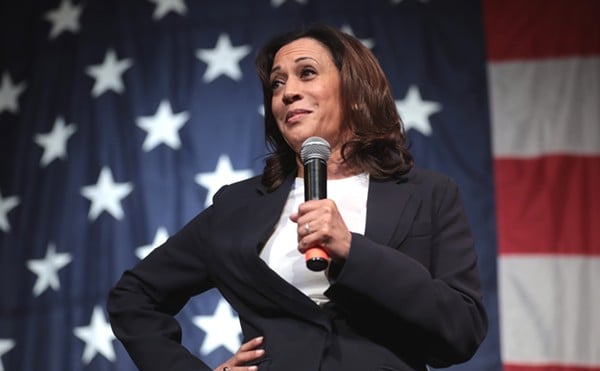Councilman Brandon Coan was looking for a way to improve the Bardstown Road corridor and its mix of businesses.
State Rep. Jerry Miller was looking for a way to fund Kentucky’s ailing pension system.
So, Coan helped create a Planning Commission resolution that could end up limiting new locations of vape and tobacco shops.
And Miller has prefiled two bills that would regulate flavored vape retailers and manufacturers and impose a 27.5% excise tax on all vape products.
Now their efforts may gain extra momentum because of new concerns about teen vaping and a national outbreak of a vaping-related lung illnesses.
“With the timeliness of all the vaping deaths and illnesses and awareness about that, it sort of seemed like the right time to take a look at if there was a way to regulate these,” Coan said about vape stores.
There have been 1,888 cases of a vaping-related lung injury confirmed by the U.S. Centers for Disease Control and Prevention. Three cases have been confirmed in Kentucky, according to the state Cabinet for Health and Family Services, with 11 others ruled as probable. Eleven percent of those who have fallen sick nationally say that they used nicotine vapes only — most have used both THC and nicotine vapes, with 34% using exclusively THC vapes.
The number of Kentucky youths in sixth, eighth, 10th and 12th grades who smoked e-cigs nearly doubled or doubled from 2016 to 2018, according to the Kentucky Incentives for Prevention Student Survey. Nicotine can harm the developing brain and studies have shown that young vapers are more likely to take up smoking regular cigarettes in the future than their peers who don’t smoke e-cigarettes.
Keeping teens off e-cigs
Derb E Cigs owner Troy LeBlanc said he recognizes the need to limit teen vaping and supports Miller’s proposed regulations, which include requiring vape retailers and manufacturers selling flavored e-cigarettes to register with the state for $500 each year. The regulatory bill would also institute a ban on online sales and require shops to adopt electronic age-verification technology by 2021.
LeBlanc, who is also the president of the Kentucky Smoke Free Association, which represents vape businesses throughout the state, said e-cigarettes are meant to help adult smokers quit smoking. “So, we at the Kentucky Smoke Free Association agree with any measure that is not an all-out ban that will help prevent creating a new addiction for teenagers who have never used our product or smoked cigarettes before.”
Miller’s original intent for his bill was to raise money for the state, but the more he looked into it, he thought the bill could help curb youth vaping.
Last legislative session, he proposed an excise tax on e-cigarettes, but the measure never made it out of committee.
It started with an email from a constituent who was irate about a bill to tax vaping products. The writer was confused: The bill he had read about was proposed in the Indiana legislature.
But that gave Miller the idea to do the same in Kentucky.
As the Republican representative researched e-cigarettes, however, he found that there were other reasons to regulate them.
“I’ve got a granddaughter — she’s in fourth grade,” Miller said. “Next year, she’ll be in middle school, and gee whiz, I don’t want her vaping.”
The potential benefit of e-cigarettes to cigarette smokers is why Miller’s bill would regulate retailers and manufacturers of flavored vaping products, not those that make or sell tobacco-flavored products. All would be taxed.
Miller doesn’t want to ban e-cigarettes. At least four states and cities have passed those, while six more have banned flavored e-cigarettes. Courts have blocked some.
“I don’t think state bans are effective,” Miller said. “I mean, we’re right across a bridge from Indiana, and we share — the majority of Kentucky’s population is in a county within 30 minutes of a border, and it just doesn’t — bans, to me, are just ineffective.”
Vape shop regulations
Louisville’s vaping resolution was unanimously passed by the city Planning Commission on Oct. 31. The resolution claims that a high number of shops selling tobacco in one area increases teen smoking and makes it harder for smokers to quit. It directs city Planning and Design staff to review city zoning regulations regarding vape and tobacco shops and to determine the most appropriate locations for those types of businesses, which could include restricting shops from certain areas or could require those shops to apply for permits to open.
LeBlanc called it “ridiculous.”
“If Brandon Coan truly wanted to make Bardstown Road a family-friendly place, he would make a measure that said no alcohol permits, no tobacco permits, nothing on the entire road,” said LeBlanc.
In September, Coan sent a newsletter to constituents saying that Bardstown Road was in decline, hostile toward pedestrians and bicyclists, losing local businesses and fraught with “social ills.” One concern, he told LEO, is too many vape shops. Residents have said the same about other businesses, such as tattoo parlors, but Coan said he isn’t going to try to limit those. “If there was a public health crisis, that people are dying and becoming sick from tattoo shops, we’d have the same thing,” he said.
Residents complain about the number of bars on Bardstown Road, too, but Coan said those and liquor licenses are already regulated, and the city has “dry precincts,” although Bardstown Road in The Highlands is not part of one.
The possibility of limiting vape shops was one of 10 or 12 ideas that Coan discussed with Develop Louisville and Bardstown Road businesses owners to improve the corridor, he said.
Develop Louisville, with help from the city Department of Public Health & Wellness, drafted the Planning Commission resolution after talking with Coan, said Develop Louisville spokesperson Caitlin Bowling.
LeBlanc is not opposed to vaping regulations, but he believes they should be common sense, and he doesn’t think Coan’s idea is.
“We’re definitely going to challenge it,” he said. •







